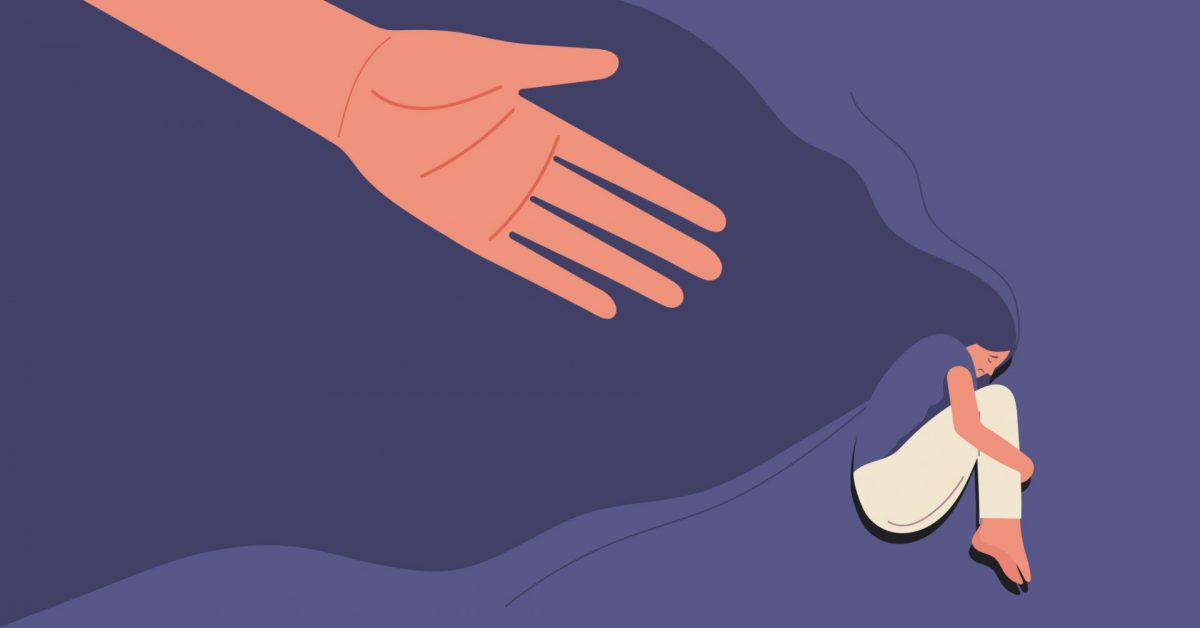Following the enforced isolation many people have experienced over the period of the pandemic, the Mental Health Foundation has chosen ‘loneliness’ as its theme for this year’s Mental Health Awareness Week.
Business Support Manager Shelley Clegg talks about the effects loneliness can have on people’s wellbeing and suggests some ways to combat it.
‘You may think loneliness is just a feeling and that it doesn’t have a lasting or dramatic impact on your overall wellbeing. But you may be surprised to know that prolonged loneliness can lead to psychiatric disorders like depression, alcohol abuse, sleep problems, personality disorders and Alzheimer’s disease. The stress caused by it can also lead to increased inflammation, which in turn may trigger some physical disorders like diabetes, autoimmune disorders and cardiovascular diseases. According to research carried out by Julianne Holt-Lunstad, professor of psychology and neuroscience at Brigham Young University and colleagues, loneliness carries the same risk of dying as that of smoking 15 cigarettes a day or being an alcoholic, and carries greater health risks than obesity.
Loneliness was a problem well before the pandemic struck. So much so, in 2018 Tracey Crouch was appointed the UK’s first ever Minister for Loneliness and the government published its strategy for tackling loneliness: A connected society: a strategy for tackling loneliness – GOV.UK (www.gov.uk). It had three overarching objectives:
- Reducing stigma of loneliness by building the national conversation on loneliness, so that people feel able to talk about loneliness and reach out for help.
- Driving a lasting shift so that relationships and loneliness are considered in policymaking and delivery by organisations across society.
- Playing our part in improving the evidence base on loneliness, making a compelling case for action and ensuring everyone has the information they need to make informed decisions through challenging times.
Lockdowns and the need for social distancing left more people than ever prey to being lonely and meant the approach to tackling loneliness needed to change up a gear. To bolster the work it was already doing, the government formed the Tackling Loneliness Network, a group of high-profile charities, businesses and public figures, brought together to help connect groups at risk of loneliness. It also launched the Every Mind Matters Loneliness Campaign that aims to remove some of the stigma around loneliness by getting people talking more about it.
However, there is still a stigma around loneliness. It can take great courage for someone to admit that they are lacking the social connections and relationships that others have, or that they feel misunderstood and alone. There is the fear that not having close social connections such as a partner, family or a group of friends is not ‘normal’. However, with research showing more than one in five adults had experienced a breakdown of their relationship during the pandemic, it’s not as ‘abnormal’ to be without a partner as they might think. And often when a relationship breaks down, people lose not only their partner but also some of their ‘joint friends’ and family too, which can lead to feelings of isolation.
One of the big problems with loneliness is that it can breed loneliness. If you’re already feeling down, the last thing you want to do is step out of your comfort zone and go out and mingle with people you may not know very well, or hardly at all. However, that is exactly what people who feel lonely need to do. They need to find ways to forge new close relationships. The Mental Health Foundation has plenty of tips to help people struggling with feelings of loneliness as does the mental health charity MIND. Hobbies and interests are things that can bind people together. They can be a way of finding a community. It can also be a less daunting way of meeting new people as you already have an interest in common.
Being kind to yourself is always a good policy. Try to spend time doing things that nourish your body and mind. Making sure you’re eating healthily and not succumbing to unhealthy comfort foods is also self-care, which is important for everyone. If we’re feeling disconnected from people, then it’s even more important that we look after our own wellbeing.
Keeping busy can also help keep feelings of loneliness at bay. This could involve something as simple as cooking a healthy meal for yourself or experimenting with a new recipe. Reading is also a great escape from the stresses and strains of everyday life and is a brilliant distraction too. You may want to try crafting or gardening, anything that you enjoy doing that will keep you busy is great.
It’s also helpful to concentrate on the quality of the relationships you already have, rather than worrying about the quantity. Relationships of all types need maintenance, so you could try to improve the ones you already have. A quick phone call or text to a friend or family member you haven’t been in touch with for a while, can be enough to renew a tie that may have loosened recently and could open up new possibilities.
Feeling lonely is not something to be ashamed of and there is help out there. Loneliness can have a significant impact on our mental wellbeing, so it’s not something to take lightly. Try to open up to someone about how you’re feeling. Sometimes, just talking about things can help you to feel better. If you’re really struggling you could even speak to your GP. They can listen, tell you about local services and support groups, or they may suggest specific treatment for the way you’re feeling, if it’s needed. Loneliness isn’t something that’s fixed, it’s a state of mind and, as the saying goes, this too shall pass.


